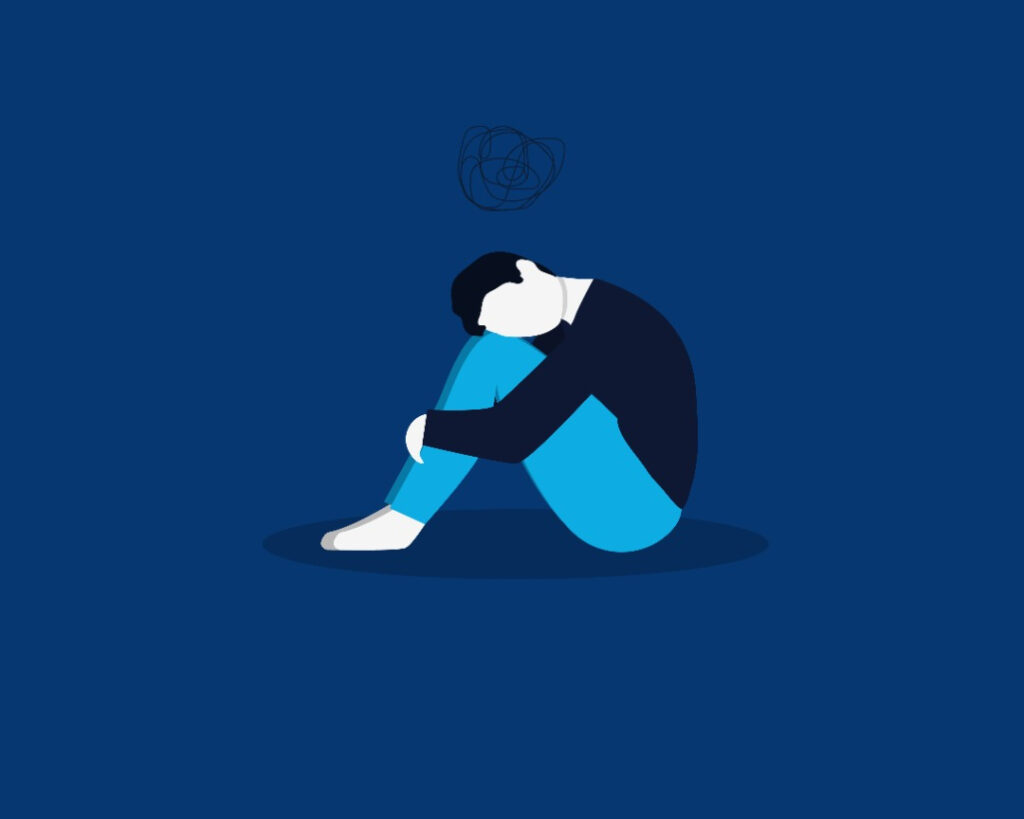Many people think of eating disorders as affecting only women, but the truth is that men can suffer from eating disorders, too. Unfortunately, many often overlook or ignore the stigma around eating disorders in men. This stigma can lead to a lack of understanding and resources for men with eating disorders. It’s essential to recognize that men can also suffer from eating disorders, face stigma regarding this condition, and need support. We will discuss the reality of eating disorders in men, the stigma surrounding them, and how to help break down the negative stereotypes.
What Causes Eating Disorders in Men
Traditionally, society has discussed eating disorders in men much less than in women, but it is crucial to understand what causes them in men.
A combination of biological, psychological, and social factors often cause eating disorders in men (1):
- Biological factors may include genetics, hormones, and brain chemistry.
- Psychological factors may include body image dissatisfaction, low self-esteem, and perfectionism.
- Social factors may include cultural expectations, societal pressures, and a lack of positive role models.
Additionally, studies have found that athletes, people of color, and members of the LGBTQ+ community are more likely to struggle with body dysmorphia and thus have an increased risk (1).
Many men with eating disorders also face discrimination and stigma due to gender. Understanding the underlying causes of eating disorders in men is vital to help reduce the stigma and better support those suffering.
How Can Men Overcome the Stigma of Having an Eating Disorder?
The best way for men to overcome eating disorder stigma is to talk about it, so it is crucial to access help from others. Find support groups or counselors who specialize in eating disorders, or seek out online forums where you can discuss your experiences with like-minded people who can relate and provide support.
Moreover, it’s essential to be aware of and challenge the societal stereotypes and norms around eating disorders in men. Don’t be afraid to seek help and open up to your family and friends. Eating disorders are serious mental health issues, and there is no shame in seeking professional help.
Signs of Eating Disorders in Men
Knowing the signs of eating disorders in men is vital to recognizing and supporting the issue. The following common symptoms often accompany an eating disorder in men:
- Excessive exercising
- Preoccupation with calories and fat content
- Extreme food restrictions or avoidance
- Drastic weight loss or gain
- Binging and purging
- Avoiding social situations
- Isolating themselves from friends and family
Men may also show signs of depression, anxiety, and low self-esteem. Additionally, men may become preoccupied with body image and body dysmorphia and excessively fixate on their weight, food choices, and physical appearance (2). If any of these signs are present in a man, seeking help from a mental health professional is crucial.
Resources to Help Men with Eating Disorders
Men who suffer from eating disorders can benefit from a multifaceted approach to treatment, considering physical, emotional, and social needs. First and foremost, it is essential to seek professional help from a qualified healthcare provider with experience in treating eating disorders. Help with eating disorders may involve a combination of therapy, such as cognitive behavioral therapy, nutrition counseling, and medication if necessary (3).
In addition, support from family and friends can be vital to the recovery journey. Encouraging beneficial behaviors, such as regular exercise and balanced meals, can also be helpful. It is important to remember that eating disorders can have severe physical and emotional consequences, and seeking help is the first step toward healing (3). By dispelling the stigma surrounding eating disorders in men, we can create a safe and supportive environment for men to seek help and achieve full recovery.
Eating disorders in men are often taboo subjects and can be challenging to talk about, but resources are available to help. The best way to start dealing with an eating disorder is to seek professional help from an experienced mental health provider. If you are looking for additional resources, many organizations, support groups, and programs are specifically for men suffering from eating disorders. These organizations provide education and guidance and offer a safe and supportive environment for men to discuss their experiences and find a path to recovery. Many of these organizations also offer online support and resources, which those suffering from eating disorders and their loved ones can access from anywhere. No matter what stage of recovery you are in, these organizations can provide invaluable support and guidance.
Eating disorders are not gender-specific, and men can suffer as greatly as women. Thus, we must work to dispel this stigma and support men to get the help they need. Organizations such as Toledo Centre offer a range of support and services to men suffering from eating disorders. If you or someone you know is suffering, reach out using their contact form or call 1-419-885-8800.
References
- Kumar, N. (2021, November 23). Eating disorders in men are not talked about enough — and they’re on the rise. Healthline. https://www.healthline.com/health/eating-disorders/eating-disorders-in-men
- Eating Disorder Hope. (n.d.) Eating disorders in males. https://www.eatingdisorderhope.com/risk-groups/men
- National Eating Disorders Association (NEDA). (2022). Eating disorders in men & boys. https://www.nationaleatingdisorders.org/learn/general-information/research-on-males
Author Bio:
Kim English is a Nursing Professor and has been teaching nurses at the undergraduate and postgraduate level since 2002. Kim has supported a family member through the lived experience of eating disorders and works to advocate for support in rural areas.

